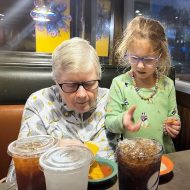Within the span of twenty-four days the people of the state of South Carolina have had an opportunity to witness victories over hatred and fear and unkindness with acts of love and forgiveness and good will. The importance of these victories will be measured in time in our lives by the way we treat each other as individuals and as the body politic is governed, but we have the right today to respectfully celebrate together even as a symbol of divisiveness returned to the ground from whence it sprung. Confederate flag lowered, flag pole removed, flag relocation accomplished.
The flag flew at the State Capitol for fifty-four years amid controversy and contention and much political posturing between opposing political parties and factions within those parties. The decision to remove it came not without rancor and recrimination in and outside the State Capitol – but it did come comparatively quickly twenty-four days after the massacre at Mother Emanuel. On June 17, 2015 nine members of the Mother Emanuel A.M.E. Church in Charleston, South Carolina were shot and killed by a young gunman from Columbia after he had been welcomed by them to participate in their routine Wednesday evening Bible study. Apparently he stayed in the small meeting for an hour before opening fire and killing six women and three men. Only one woman survived.
Four days after the massacre in their church, the following Sunday morning of June 21, 2015, Mother Emanuel once again opened its doors for the regular Sunday services. By this time, the alleged killer had been caught and the crime had been identified as a hate crime of horrific proportions and video images of the man began to surface – images of a young white male waving a Confederate flag spewing racial hatred against blacks. Television interviews with his friends claimed that he hoped his actions would begin a racial war in South Carolina.
The murders attracted international attention and an article written by John Eligan and Richard Faussat appeared in the New York Times on that Sunday, June 21st. in which they described other worship services a block away from Mother Emanuel that were taking place in a small white tent as crowds gathered to mourn the nine people killed. All the church bells in Charleston had pealed for nine minutes at 10 a.m. and various pastors in the white tent spoke following the tolling of the bells.
Jermain Watkins, a black teaching pastor at Journey Church in Charleston, was quoted in the Times article as follows: “To hatred we say no way, not today. To racism, we say no way, not today. To division we say no way, not today. To reconciliation we say yes. To loss of hope, we say no way, not today. To a racial war, we say no way, not today. To racial fear, we say no way, not today. Charleston, together, we say no way, not today.”
Across the country in the First Corinthian Baptist Church in Harlem, the Times article went on to quote the Reverend Michael A. Walrond, Jr. as saying “Racism, bigotry, prejudice and hatred are elements woven into the fabric of this country. There can be no healing in this land if we are not honest about who we are.”
Being honest about who we are is easier said than done. Often, we find ourselves struggling to be honest about who we love – not to mention who we hate. And if we have these individual struggles in our personal lives as we look in our own reflections in the mirror, how much more difficult is it to be honest about who we are as a collection of citizens who grow up with our segregating filters of race, gender, sexual orientation, income levels, degrees of health, rural versus urban with suburban in-between, political affiliations and more. We are a nation divided on many levels with distrust and fear and prejudice against those who are different from us.
But the examples of the families and friends of the Emanuel Nine and the citizens of Charleston under the leadership of Mayor Riley with the support of local, state and federal law enforcement officials have been glimmers of hope in a land which too often appears to be hopelessly mired in hatred and fear. Removing the Confederate flag was a symbolic reaction by an entire state that said, we must be honest with ourselves about the hatred and evil that exist within our boundaries. We must resolve with the families of the Emanuel Nine to say yes to reconciliation, to say yes to forgiveness, to say yes to hope and to begin again to build bridges of kindness and concern for each other. As this flag is lowered, our collective spirits are raised.

Your post gave me chills. Yes yes yes!
LikeLiked by 1 person
Thanks so much, Luanne! Yes!
LikeLike
Right on, Sheila.
LikeLiked by 1 person
Thanks, Bob. You are the person who made me believe I had an authentic voice…eight years ago this fall. Can you imagine how those years have flown past us…
LikeLike